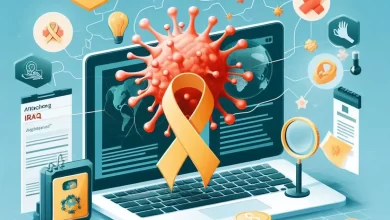Cancer does not affect whales .. Do they have immunity against tumors
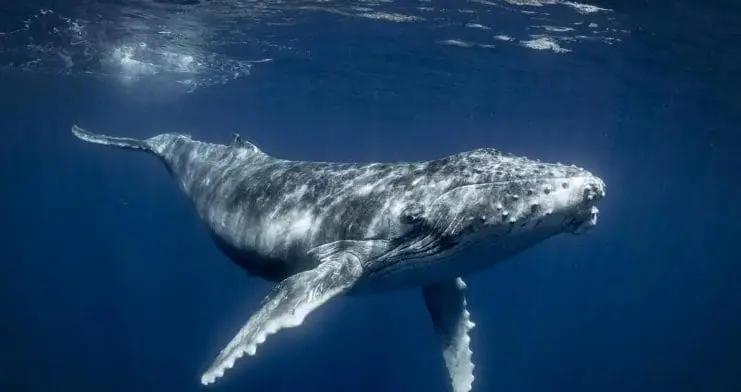
cancer is the second leading cause of deathTrusted Source at a global level,According to the World Health Organization (WHO), affecting millions of people of all ages worldwide.
At its core, cancer starts when cells mutate abnormally and start growing and dividing uncontrollably, in a way that disrupts the normal functioning of their biological environment.
Some researchers have argued that the diseases that fall under the cancer umbrella have become more widespread in the modern worldTrusted Source, largely due to factors such as pollution and other environmental changes caused by human action. Still, many studies show that people have experienced cancer for thousands of years.
The earliest case of cancer that researchers have so far been able to document occurred in a hominin (early human ancestor) whose remains date back 1.7 million years. Investigators located these remains in a South African cave, and they yielded evidence of osteosarcoma, an aggressive type of bone cancer, at the dawn of the human race.
Yet humans and their ancestors are not the only animals to have been affected by cancer through history. Anecdotally, cancer is the leading cause of death in cats and dogs, and some birds, reptiles, and fish — in captivity and in the wild — can experience cancerTrusted Source, too.
Furthermore, according to recent discoveries, even dinosaurs sometimes developed cancerTrusted Source.
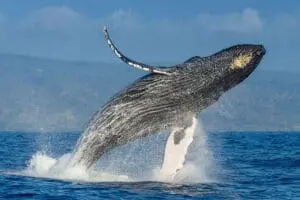
Age, weight, and cancer risk
Experts explain that a person’s age and their weightTrusted Source can heighten their risk of developing cancer. That makes sense because the longer someone lives, the more time there is for cells to mutate, and because, as the body ages, its cells may be more susceptibleTrusted Source to mutations.
Also, the more a person weighs, and some scientists even suggest, the taller they are, the more cells there are that can undergo mutation.
However, these correlations do not apply evenly across species in the animal kingdom. In fact, some animals are extremely unlikely to develop cancer, despite the fact that they are very large and long-lived.
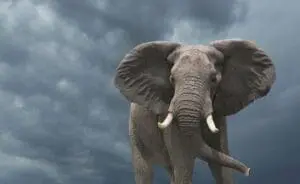
Elephants, porpoises, and whales have incredibly low rates of cancer. Researchers have been wondering why and considering whether these animals’ resistance to cancer could help humans better understand the disease and how best to fight it.
اقرا المزيد.. ? Is cheese harmful to health! What are the health benefits
Humans have this gene, too. However, while humans have only one copy of it, elephants have as many as 20 copies.
So what about whales? A team of researchers from Northern Arizona University, in Flagstaff, the Arizona State University, in Tempe, and other collaborating institutions believes that the answer may, once more, lie in these aquatic mammals’ genes.
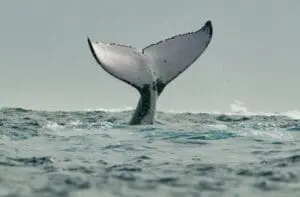
Why cancer doesn’t affect whales
For this study — the findings of which appear in the journal Molecular Biology and Evolution — the researchers obtained permission to analyze a skin sample from Salt, an adult female humpback whale (Megaptera novaeangliae).
Salt frequents the waters off the coast of Massachusetts, and the researchers decided to focus on her because other scientists, as well as humpback whale-watchers, have been following her for a long time, since the mid-1970s, to be precise, so there is no shortage of data about her.
The research team — led by Marc Tollis, Ph.D., an assistant professor at Northern Arizona University — performed DNA and RNA sequencing on the skin sample collected from Salt in order to assemble a map of her genome.
Once they had accomplished that, the investigators compared these data with information on the genetic makeup of various mammals, including members of 10 other cetacean species, such the blue whale (Balaenoptera musculus), the bowhead whale (Balaena mysticetus), and the sperm whale (Physeter macrocephalus).
The investigators’ analysis revealed that certain genomic loci (specific parts of the genome) had evolved at a faster rate in whales than they had in other mammals. Specifically, these were loci containing genes that regulate cell cycle, proliferation, and the process of in-cell DNA repair — essentially, the maintenance process of healthy cells.
Tollis and the team note that the genes responsible for these cell maintenance processes mutate in human cancers.
Another characteristic that sets whales apart from other mammals is that they have many duplications of tumor-suppressing genes, the genes that prevent cancer from developing and growing.
“This suggests that whales are unique among mammals, in that in order to evolve their gigantic sizes, these important ‘housekeeping’ genes, that are evolutionarily conserved and normally prevent cancer, had to keep up in order to maintain the species’ fitness,” explains Tollis.
اقرا ايضا.. ?What is visceral fat and how do you get rid of it
“We also found that despitethese cancer-related parts of whale genomes evolving faster than [in] other mammals, on average, whales have accumulated far fewer DNA mutations in their genomes over time, compared to other mammals, which suggests they have slower mutation rates,” he continues.
This means that whales are immune to malignant tumors thanks to the genes they possess. This information can be of fundamental help in anti-tumor research in humans, and its use in human anti-cancer therapies.


